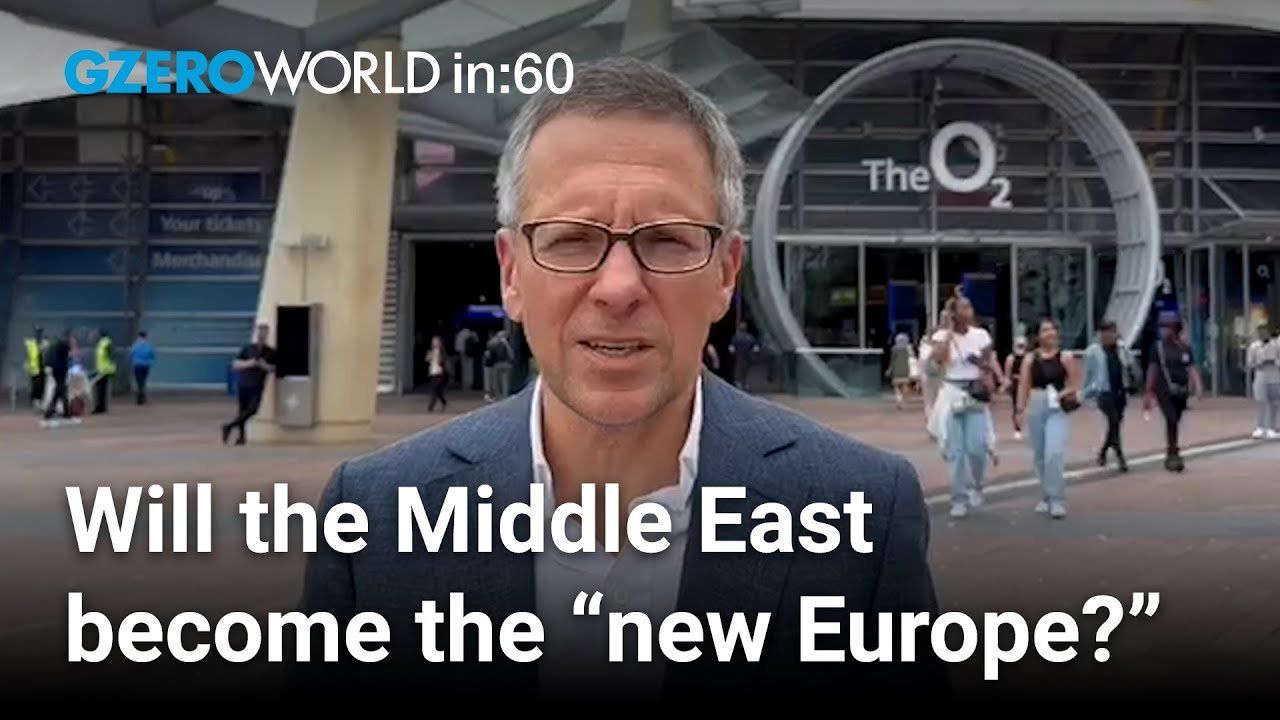Ian Bremmer shares his insights on global politics this week on World In :60.
First, will there be long-term regional consequences following the devastating Moroccan earthquake?
I hopefully I think the answer to that is, no. I mean, the response from the government was relatively, it wasn't immediate. And it wasn't great to begin with, in part, because the king, I guess, was in Paris. And it's very vertical. Nothing happens without the king. But now they're moving. There's a lot of international humanitarian aid going in. And as devastating as it is in terms of human lives, the ability to keep Marrakech going is pretty high. Even the IMF annual meeting in a few weeks’ time should still be there. So on balance, I think this is one where the consequences are borne by all of the families, but not on Morocco more broadly.
Secondly, is the Middle East on its way to becoming “the new Europe,” as Mohammed bin Salman recently said?
Yeah, no, I wouldn't go that far. But certainly, Mohammed bin Salman has done more in terms of reform and dramatic transformation of his country, and yes, with some downside, than anyone could have imagined before he came in. That's why he's so incredibly popular among the young people in Saudi Arabia, and certainly, it's why he's attracting a lot more attention to the region, including capital investment from a lot of different places.
And finally, Kim Jong Un is traveling to meet Putin. How concerned is the West?
Should be concerned in part because that's the only person out there that really supports Putin right now. It's like Belarus, it's North Korea, it's Iran, it's rogue states that the Americans and the Europeans cannot contain or constrain. And that's a serious problem.
That's it for me. I'll talk to you real soon.
- Why isn’t Morocco accepting more help? ›
- Killer quake strikes Morocco ›
- The Saudis want to be peacemakers in Ukraine ›
- Israel/Palestine one of the few Middle East areas getting less stable ›
- Putin toasts to “strengthening of cooperation” with Kim Jong Un ›
- Putin hosts Kim Jong Un at arms summit ›
- Kim Jong Un meets Vladimir Putin ›
More For You
Most Popular
Small business hiring surged 7% above the 2024 average in December, led by a surprise rally in retail. But with uncertainty still historically high and mounting concerns over tariffs, can this momentum survive 2026? Explore the data behind the resilience of the US small business sector. Get the latest economic insights from Bank of America Institute.
Chris, an Army veteran, started his Walmart journey over 25 years ago as an hourly associate. Today, he manages a Distribution Center and serves as a mentor, helping others navigate their own paths to success. At Walmart, associates have the opportunity to take advantage of the pathways, perks, and pay that come with the job — with or without a college degree. In fact, more than 75% of Walmart management started as hourly associates. Learn more about how over 130,000 associates were promoted into roles of greater responsibility and higher pay in FY25.
Somewhere in the Donbas region, Ukrainian soldier Artem Bondarenko says he hasn’t slept through the night in months as he defends Eastern Ukraine.
